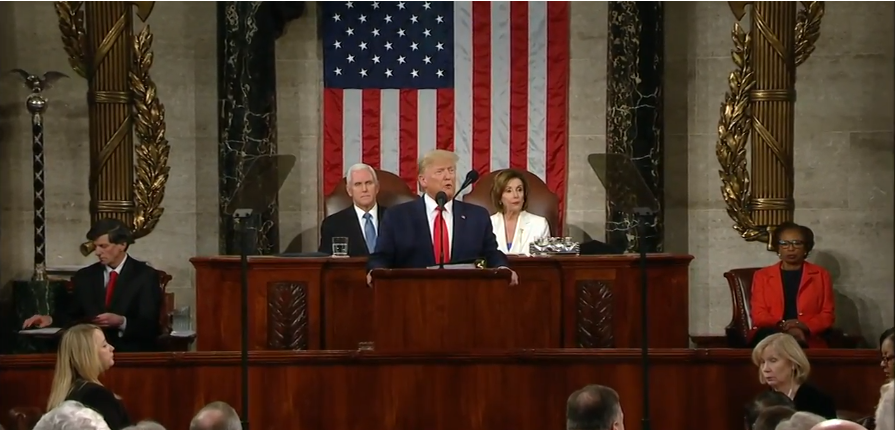 Somebody in the White House has been thinking. President Trump’s recent State of the Union address, while wanting perhaps in style, included a truly clever turn of the screw.
Somebody in the White House has been thinking. President Trump’s recent State of the Union address, while wanting perhaps in style, included a truly clever turn of the screw.
Trump stole an issue only Cory Booker among the Democrats dared to touch – school choice for low income families. Booker was ready to face the teachers union; the other candidates for the Democratic nomination were not, and now really cannot.
Trump now owns the issue, and it connects him to those individuals who are sick of having their kids conscripted for a school the child and family despise. Those persons had found the president wanting in this area, but he now will be a hero to thousands who have been crying for so long for an end to compulsion.
The details of any specific proposal will, of course, be crucial to its actual success. I trust this proposal will not be the sort of small and uniform voucher for rich and poor alike, the sort one associates with the late Milton Friedman. The rich do not need the help, and at most should qualify for a token subsidy. The need is centered on low and lower-middle income families who are simply stuck.
Could the federal government by itself afford to provide the necessary dollars for an authentic and sufficient subsidy for all the poor to have their choice of school? Of course not. But, properly designed, it could intensify popular awareness of the potential of reform at the state level.
One great stumbling block for school choice subsidies has been the 19th century adoption by most states of so-called Blaine amendments to their constitutions. These raised legal barriers to all financial aid to religious institutions. Such laws greatly limit the states’ ability to aid the parents’ choice of religious schools which make up most of the private sector. Happily, the Supreme Court has before it litigation which could well eliminate the problem by holding these 19th century relics of prejudice unconstitutional.
What will be the response of Democratic candidates to the dilemma Trump has posed for them? If they continue their hostility to forms of aid that allow the poor parent to choose, they will maintain the support of the teachers union but risk that of those low-income fathers and mothers who have enthusiastically stood for subsidies spendable in private school.
Trump now has in hand the sort of weapon he obviously prizes and perhaps should. He has his opponents clearly in his sights as hypocrites, the kind of slam they have so frequently given him. The Dems have made their careers as heroes of the poor. For whom will they be heroes now?



One huge problem with your article is that you keep talking about poor families. Read the article by Mac Stipanovich, former advisor to Jeb Bush who brought vouchers on the Florida education system. It’s not about poverty any longer. It is becoming a middle class entitlement. So which is it?
https://www.google.com/search?q=Mac+stipanovich+vouchers&rlz=1C1GCEB_enUS860US860&oq=Mac+stipanovich+vouchers&aqs=chrome..69i57.8028j0j1&sourceid=chrome&ie=UTF-8&safe=active&ssui=on
https://www.google.com/search?q=Mac+stipanovich+vouchers&rlz=1C1GCEB_enUS860US860&oq=Mac+stipanovich+vouchers&aqs=chrome..69i57.8028j0j1&sourceid=chrome&ie=UTF-8&safe=active&ssui=on
Tim’s right, this is a middle class issue: it should even concern my upper middle class neighbours, who move to a city like Irvine expecting to find outstanding public education (the parents are an outstandingly educated public), but soon realize, when looking at the tests & standards in use because of our federal and state governments, that their children will find well behind their cousins overseas unless they access private tutors like me. We absolutely could benefit from the administration’s educational proposals, while the teachers’ labour union party, the Democrats, offer nothing other than an increasingly expensive return to the choiceless past of Congressman James G. Blaine and Governor Walter Pierce.
(That should have been, “their children will fall well behind”.